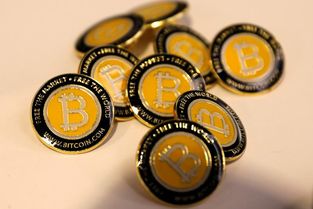摘要:El Salvador’s lofty ambition to lead the world in Bitcoin adoption may require more than the re-election of its Bitcoin-loving president Nayib Bukele, according to merchants and Bitcoin enthusiasts on...
El Salvador’s lofty ambition to lead the world in Bitcoin adoption may require more than the re-election of its Bitcoin-loving president Nayib Bukele, according to merchants and Bitcoin enthusiasts on the ground.
Bukele, who served as president between June 2019 and December 2023, was the driver behind making Bitcoin legal tender in El Salvador in September 2021. On Feb. 4, Bukele secured a landslide re-election victory, with preliminary results showing him winning 83% of the 70% votes currently counted.
BREAKING: The 1st #Bitcoin President Nayib Bukele has officially been re-elected in El Salvador
— Rizzo (@pete_rizzo_) February 5, 2024
We are watching history pic.twitter.com/ia18Ifc4kH
However, a largely tech-illiterate population, lack of merchant enforcement and a mostly sideways Bitcoin market will weigh on El Salvador’s so-called “Bitcoin experiment,” according to Jamie Robinson, chief strategy officer of The Bitcoin Hardware Store.
Robinson explains that the issues first started after the rollout of El Salvador’s Chivo Wallet in September 2021 (when Bitcoin was made legal tender), which, according to him, failed at launch.
But even after those problems were resolved, Chivo devices often ended up uncharged, unupdated and many employees in merchant stores didn’t have the technical know-how to reinstall it, he explained.
A recent study reveals challenges in El Salvador's Bitcoin adoption, showing limited use of the state-run Chivo Wallet despite government efforts. pic.twitter.com/dCpaecXhV2
— Tiger Research Inc. (@Tiger_Research_) February 5, 2024
Meanwhile, there was a lack of customer demand to pay in Bitcoin, particularly as Bitcoin fell from its all-time high price of $69,000 to as low as $15,600 in early 2023.
“A temporary death spiral occurred,” Robinson said of the situation.
In 2023, only 12% of the local population used Bitcoin at least once to pay for goods and services, down from the prior year, a recent survey by José Simeón Cañas Central American University revealed.
A year before, former Cointelegraph reporter Joe Hall visited El Salvador in 2022 with the aim of paying for everything in Bitcoin but ultimately failed, with many merchants not accepting the cryptocurrency despite legally being required to do so.
However, Robinson says the private sector has since swooped in to help the government with many of these problems.
“Ditobanx, Tiankii, IBEX, and Athena are delivering dreamy Lightning experiences at major global brands here like Walmart, Starbucks, Re-Max, & Domino’s.”
I bought my groceries in El Salvador yesterday with #bitcoin at Super Selectos ⚡️
— Arnold Hubach ⚡️ (@st4rnold) November 13, 2023
More than $100
⚡️ Paid over lightning
⌛️ In less than 2 seconds
For 0,4% fees
From my non-custodial @PhoenixWallet
Yes, if you want (!) you can live on a bitcoin standard! pic.twitter.com/UcIeYm7Bci
Several casinos and restaurants have also made new efforts to accept Bitcoin as payment now that Bitcoin is trending upward again, Robinson observed.
“The price moving upwards will help restart more businesses, who know in the back of their mind that they have the legal obligation.”
Using #bitcoin for payment in @dominos pizza, El Salvador ⚡️ pic.twitter.com/Vgvt8gCiGj
— Charlie Mackenzie (@charlie21fastaf) February 14, 2023
The Salvadoran government initially said businesses could face action should they choose not to accept Bitcoin. But Robinson says he hasn’t seen any fines or penalties handed out yet.
“The direction is moving up, but it has been slower than we’d like."
Speaking to Cointelegraph, Bitcoin Beach community leader Roman Martínez highlighted that patience is key for a country whose locals have had limited access to traditional banking services.
Related: El Salvador’s Bitcoiners teach 12-year-olds how to send sats
“70% of people in the country have been unbanked, they have not been able to participate in any sort of investing in the traditional financial market [so] it is unrealistic to think people are going to learn overnight, Martínez argued.
“We’re moving forward,” Martinez said, “but it’s a process.”
Learning to self-custody is important too
Another focus area in the country is educating the local population about the importance of self-custody, which is what led to the launch of The Bitcoin Hardware Store, Robinson explained.
“Many new Bitcoiners are already taking the first step of buying Bitcoin but leaving them on exchanges or with custodial wallets,” Robinson said.
“We want to promote the next and important step of self-custody. The store is a place where curious users can come ask any questions and level up.”
Robinson said that his Bitcoin Hardware Store will open soon in El Zonte — known by locals as “Bitcoin Beach” and a 45-minute drive from the nation’s capital, San Salvador.
The #Bitcoin Hardware Store is preparing to open soon in El Zonte, El Salvador @tbhs_sv pic.twitter.com/VpyTfo2OD5
— Simply Bitcoin (@SimplyBitcoinTV) February 2, 2024
Magazine: Should you ‘orange pill’ children? The case for Bitcoin kids books




